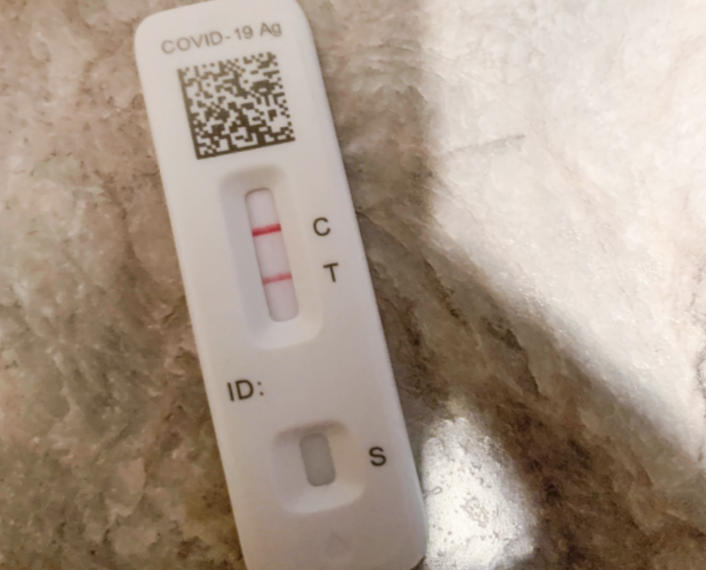The university will begin holding weekly drop-in covid-19 testing clinics for all St. Joe’s community members starting Feb. 2.
The clinics will take place in The Perch from 11 a.m. to 4 p.m. every Wednesday and will continue through the end of the semester, according to a Jan. 27 university announcement. No clinics will be held March 2 (Ash Wednesday) and March 16 (spring break). Community members will need to present their health insurance cards and St. Joe’s IDs, but appointments are not necessary.
Gabrielle Lacherza, associate director of public relations, wrote in response to written questions from The Hawk that the university will be using both rapid antigen tests and PCR tests, and the clinic will be run by nursing students from Temple University under their instructor’s supervision.
“Antigen (rapid) tests are for those with symptoms,” Lacherza said. “PCR tests are more sensitive and are for those with symptoms who have tested negative with antigen (rapid) tests and for close contacts.”
Some recent research indicates rapid antigen tests may be less reliable in detecting the omicron variant.
Eileen Bevilacqua, director of the Student Health Center, wrote in response to written questions from The Hawk that the efficacy of rapid antigen covid tests is dependent on multiple factors, like the time period that an individual has been infected with the virus.
“Compared to molecular tests (RT-PCR), antigen tests are more likely to generate false negative results, especially when performed on people who don’t have symptoms,” Bevilacqua said.
The health center currently has approximately 19,000 rapid antigen tests in stock and uses both PCR and rapid antigen tests in their testing strategy. While the rapid tests are for symptomatic individuals, if that symptomatic student tests negative on an antigen test, they will then be tested with a RT-PCR test, according to Bevilacqua.
While rapid antigen tests are not perfect in terms of detecting the virus, they are still able to provide some peace of mind in certain circumstances, especially if someone is symptomatic, according to Dr. Judith A. O’Donnell, M.D., chief of infectious diseases, hospital epidemiologist, and director of infection control at Penn Presbyterian Medical Center.
“The tests have a very good positive predictive value, meaning that they are really good at identifying cases in people who have symptoms,” O’Donnell said.
O’Donnell also said because rapid tests are not as sensitive in detecting covid, they can have a false negative or, rarely, a false positive result. In order to make sure someone gets an accurate result, O’Donnell said it’s beneficial to test more than once, successively.
“That’s to increase the likelihood that you’re going to capture the virus on the second test and confirm your suspicion that you have covid,” O’Donnell said. “So, they are unlikely to be falsely positive, but they can be falsely negative. In order to combat that, you have to do serial testing.”
This means that someone who suspects they have covid should get tested as soon as possible, and test again 5-7 days after they were exposed to the virus, according to the Centers for Disease Control and Prevention (CDC).
To err on the side of caution, O’Donnell also suggested supplementing rapid antigen tests with PCR tests.
“If you are symptomatic and you’ve had a couple of negative rapid antigen tests, you’re still having symptoms, and you’re concerned, you should go get a PCR test,” O’Donnell said.
Faculty and staff who have university-provided health insurance through Independence Blue Cross can be reimbursed for up to eight at-home covid tests per calendar year, according to a Jan. 25 email from the Office of Human Resources. Tests obtained through Rite Aid, Walmart or Sam’s Club pharmacy counters are free of charge. Tests purchased at other locations are eligible for reimbursement, but members need to submit receipts and claim forms.
All St. Joe’s community members can also register for free, at-home rapid antigen tests through COVIDTests.gov. On Jan. 19, the U.S. government launched a website to distribute rapid antigen tests throughout the country. Each U.S. household is eligible for up to four testing kits.









































